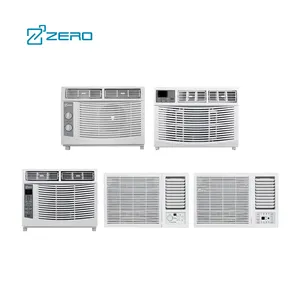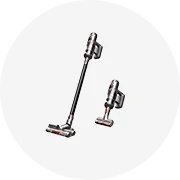
Customized High Quality Air Conditioning Outdoor Convenient Mobile Batteryless Tent Air Conditioning



Hot Selling Factory Price Portable 2000btu Refrigeration Mobile Air Conditioner Mini AC Air Conditioner Mobile






















Window air conditioners are compact units designed to cool a single room or space efficiently. These appliances are particularly suitable for those who need a convenient and cost-effective cooling solution without the complexity of a central air system. They are commonly found in residential settings such as apartments and homes, but they're also used in small offices, hotel rooms, and other commercial spaces where individual room control is desired.
The principle behind a window air conditioner is relatively simple: it works by drawing warm air from the room into the unit, cooling it by passing it over a refrigerant-filled evaporator coil, and then blowing the chilled air back into the room. The heat absorbed by the refrigerant is expelled outside through a condenser coil. This process not only lowers the temperature but also dehumidifies the air, making the environment more comfortable.
Window air conditioners come in various sizes to accommodate different room volumes and preferences for energy consumption and cooling capacity. They are typically mounted in a window or, less frequently, through a hole in an exterior wall, and they combine all components necessary for operation within one casing. This self-contained nature makes them portable between seasons or when moving to a new location.
Window air conditioners come in an array of types each tailored to specific needs and applications:
Standard Window Air Conditioners are the most common type designed for double-hung windows. They offer a straightforward cooling solution that ranges from small units suitable for bedrooms to larger ones for living spaces.
Low-profile Window Air Conditioners are designed with a sleeker silhouette impacting less of the window view and allow more natural light to enter the room. Apt for those who prioritize aesthetics along with functionality.
Smart Window Air Conditioners can be connected to Wi-Fi and controlled via a smartphone app. They are perfect for tech-savvy users who value convenience and want to adjust settings remotely.
Slide-out Chassis Air Conditioners have a chassis that slides out from the actual casing, making installation and maintenance easier. This feature is particularly useful for heavy units that require frequent servicing.
Casement or Slider Window Air Conditioners are specially designed for casement or sliding windows. Their vertical orientation complements the sliding mechanism of these window types.
Each type serves common use cases from residential homes looking to cool single rooms without the expense of central air, to small businesses needing an efficient way to keep their premises comfortable.
Selecting the right window air conditioner for your business depends on several factors:
Room Size: It's crucial to match the BTU (British Thermal Unit) rating of an air conditioner with the size of the space you intend to cool. A unit that's too small won't cool efficiently, while one that's too large can lead to excess humidity.
Power Source: Consideration should be given to whether electrical outlets are compatible with the unit's requirements—most will need a standard 110-120V outlet but larger models may require 220V.
Features: Features like programmable timers, remote controls, and variable fan speeds can add convenience and enhance user experience. For businesses where noise levels are a concern, models with quieter operation should be sought out.
Energy Efficiency: Energy-efficient models may have higher upfront costs but can lead to significant savings on utility bills in the long run. Look for units with high EER (Energy Efficiency Ratio) ratings or those that are ENERGY STAR certified.
Mounting and Installation: Ensure that the selected air conditioner will fit securely in your existing window frames or wall openings without requiring extensive modifications.
Businesses that demand specific operational standards such as those in manufacturing plants or food shops should consider models with more durable components and specialized functions like dust filters or corrosion resistance.
Alibaba.com offers a wide array of window air conditioners from various suppliers around the world, making it easier for businesses to find units that meet their specific needs—whether it's cooling effectiveness, energy efficiency, or advanced features like smart home integration. With suppliers listing products that cater to both residential and commercial applications, buyers can filter through options based on their targeted use case—be it an apartment building, hotel rooms, industrial settings, or small offices.
The platform's commitment to facilitating global trade is evident through features such as mobile-friendly buying options and support in multiple languages, which substantially simplifies procurement for businesses operating in different countries. Moreover, Alibaba.com's Trade Assurance program provides buyers with payment security until their orders are safely delivered, reflecting its dedication towards reliable transactions and customer satisfaction.
Through Alibaba.com's expansive network of suppliers, businesses have access not only to products of diverse specifications but also customizable options that can fit unique requirements. This possibility to tailor orders allows businesses of all sizes to acquire window air conditioners that align perfectly with their operational demands without compromising on performance or budget constraints.
The size of the window air conditioner you need depends on the square footage of the room you wish to cool. Generally, an air conditioner requires 20 BTU for each square foot of living space. It's important to choose a unit with the appropriate BTU rating to ensure efficient cooling.
Window air conditioner efficiency can vary significantly between models. Look for units with a high Energy Efficiency Ratio (EER) or those that have ENERGY STAR certification, as they use less energy and can save costs in the long run.
Some window air conditioners come with a heating function in addition to cooling. These are known as "heat/cool" or "reverse cycle" units and are suitable for use in climates that experience both warm and cool seasons.
Yes, smart window air conditioners are available that allow for remote control via a smartphone app. These units may also be compatible with other smart home devices and systems.
Regular maintenance for window air conditioners includes cleaning or replacing filters, inspecting cooling coils for frost build-up, and ensuring that the exterior elements are clear of debris. Some models may have slide-out chassis for easier maintenance.
While many window air conditioners are designed for easy installation and may come with a user-friendly kit, it is sometimes recommended to have a professional install larger or more complex units to ensure proper fitting and operation.
Yes, window air conditioners can be used in commercial settings such as small offices, restaurants, and shops. It's essential to select a unit with adequate capacity and durability for high-demand environments.
Certain models of window air conditioners are designed for casement or sliding windows. These have a vertical orientation and are specifically built to fit within the different dimensions of these types of windows.
Consider the environment you're looking to cool—dusty, humid, or requiring sterile conditions—and search for units with features that match these needs. Additionally, assess whether the typical noise level of a unit is acceptable in your industry's setting.
Consider suppliers who offer comprehensive after-sales service such as online support, video technical support, or free spare parts. The scope of service provided can be indicative of the confidence suppliers have in their products' longevity and reliability.